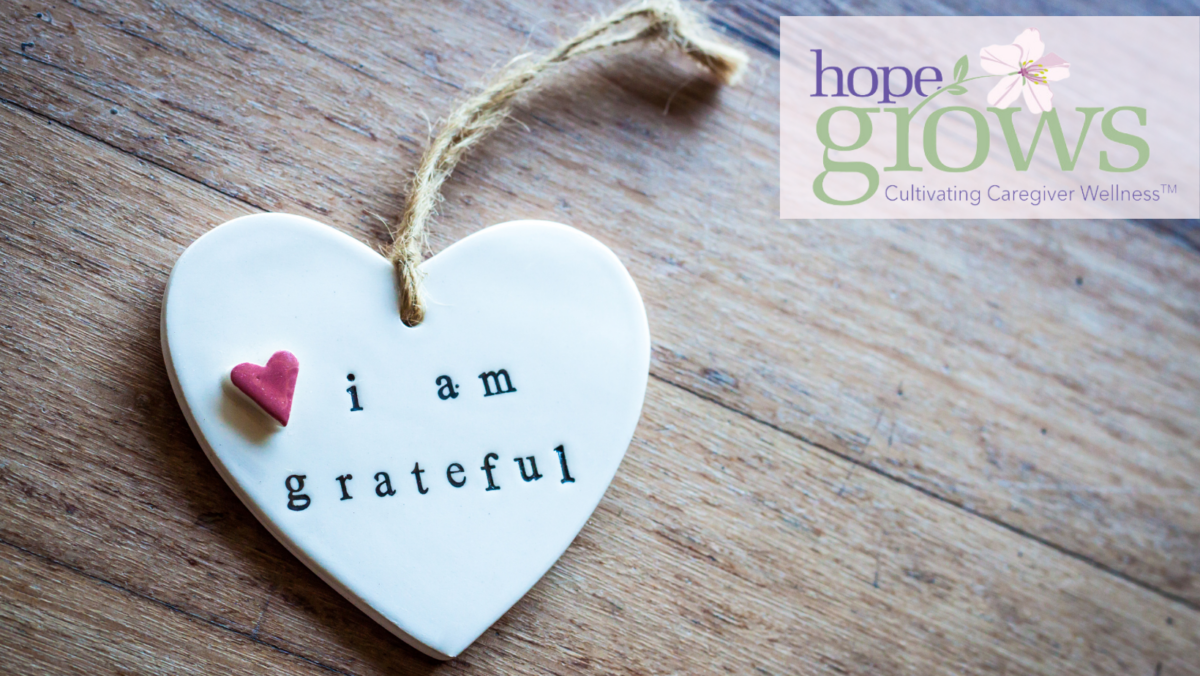Gladness

Thank you for joining us this November month of 2023 as we celebrated caregivers during National Family Caregivers Month and our Hope Grows 8th Annual Celebrating YOU! event, our 7th Annual Bob Evans Turkey Meal Deliveries, and Gladness, our Focus of the Month!
This month, we talked about the importance of “taking a break” and shared ways to do this in “just 10 minutes.” I was able to be a witness of a common theme of “gladness” in the air at our events, as everyone began to experience “rest” and “connection” with each other.
How suitable that the famous quote “there are only four kinds of people in the world: those that have been caregivers, those that are caregivers, those who will be caregivers, and those who will need caregivers,” is being widely circulated this month.
If you follow any movement of advocacy for caregivers, you are familiar with Rosalyn Carter, God rest her soul. The former first lady, founder of the Rosalynn Carter Institute for Caregivers died on November 19. She established the institute in 1987, to promote the health, strength, and resilience of America’s 53 million family caregivers. I think we can all be glad and express thanks and appreciation for her work.
“Being thankful is the quickest path to joy,” said Jefferson Bethke, a best-selling author of Take Back Your Family and Jesus, Religion and It’s Not What You Think. Thankfulness and joyfulness is at the root of gladness. The dictionary tells us that gladness is a type of happiness, an emotion one experiences when in a state of well-being.
So, why are we not in this state of well-being all of the time? Easy! Stress! It is a fluent part of our daily lives and impacts our emotions; it just isn’t possible to maintain a constant state of happiness. Is that okay? I think so. This is why healthy coping mechanisms are crucial and cultivating a balance in life is an important practice.
For those that know me, I am the grandmother to 8 beautiful human beings. Watching their growth from a perspective of a seasoned mother and a mental health therapist has truly become a constant state of behavioral observation. Of the 8 children, two of them are girls, and I am and have been a witness to my 6- and 13-year-old granddaughters, both in very different development and emotional states. Nonetheless, they both live with a constant ebb and flow between happiness (gladness) and a state of, what I call “childhood hysteria.” This frenzy is normal and what I see them doing is coping appropriately. Their parents have given them the tools to bounce back into a state of gladness (happiness, if you will) when stress or something doesn’t go, in their mind, correctly.
Gladness, or the feeling of happiness and joy, can have significant positive psychological effects on stress. When you experience gladness, it often counteracts the impact of stress in several ways. Reduction in stress hormones, improved resilience, and a positive mindset are just a few.
Healthy coping mechanisms are a form of mindfulness, exercise, social support, and problem-solving skills. I truly believe though, for my two granddaughters, part of the success is they just don’t stay in an unpleasant emotion for too long. As most children, they can bounce from the stressful unpleasant moment quickly, if given the right environment.
Stress is a natural part of life, and the key to managing it effectively is by finding a balance between the stress and gladness. Our Hope Grows Care Model includes ways to find that balance and, in that moment, I believe is a place of equilibrium where we find a more empowered, fulfilled, and resilient person, which then reinforces the reason to be in this state of well-being.
Our state of mind is so full of emotions, why wouldn’t we want to feel more than just gladness all of the time? After all, an unpleasant emotion often can lead to change. If I didn’t experience sadness, Hope Grows may not exist. The mission grew from sadness and grief; good things can happen when we experience unpleasant emotions. The important part is knowing how to cope: “take a break” daily and don’t linger in the unpleasant for too long.
So, go into the last month of the 2023 with the thought of cultivating gladness, as it can create a ripple effect of positivity. Some suggestions are to laugh and smile (even when it’s hard to), seek learning and growth, positive self-talk, acts of kindness, engage in activities you enjoy, and implement a gratitude practice. Practicing gratitude and almsgiving changes our brain chemistry. More on that later, but what a great month to give of yourself and let the world know how glad you are to express YOU through giving. The return is worth it…A Glad and Joyful Heart.
Happy Thanksgiving!
Written by Lisa Story, MSCP, LPC, CT
Hope Grows Founder & Clinical Director
